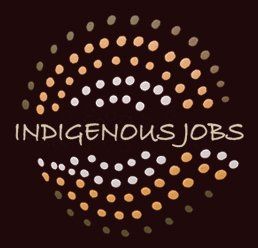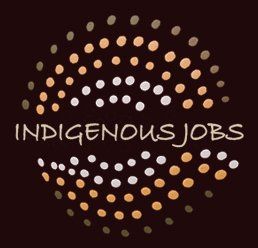'Cultural load' means mob taking on extra work, and it's not OK
As NAIDOC Week fast approaches, us mob often find ourselves being asked to take on extra responsibilities at work.
It could be that we're asked to do a Welcome or Acknowledgement of Country - or requests to run cultural workshops. It could be getting asked a thousand questions by non-Indigenous colleagues when they could simply just google the answer.
These extra responsibilities we take on are sometimes referred to as 'cultural load'. Some academics have labeled these extra responsibilities as exploitation, which mob are the victim of far too often.
In an article published by The Conversation, academics make the distinction between cultural load and gendered and racial exploitation.
“Overburdening Aboriginal women with unreasonable workload is not part of their job description and is not reflective of cultural responsibilities or cultural load. It is gendered and racial exploitation.”
Cultural load can be better described as the invisible workload placed on Aboriginal and Torres Strait Islander employees to provide knowledge, education and support to their colleagues.
The invisible workload placed on Aboriginal and Torres Strait Islander employees to provide knowledge, education and support to their colleagues is often done without any formally agreed reduction or alteration to their workload, or their salary.
In fact, in a 2020 survey of more than 1,000 Aboriginal and Torres Strait Islander employees, 39 per cent said they carried the burden of 'high cultural load', which came in the form of extra work demands and the expectation they would educate others.
Taking on extra responsibilities
Kirli Saunders, a Gunai writer and artist, has experienced the impact of cultural load first-hand.
"I've been asked to do things for free or at a rate that doesn't honour the workload that is going into that event," she told NITV.
Ms Saunders says it can feel uncomfortable saying no to these extra responsibilities that are expected of mob.
Author Kirli Saunders says that she's been asked to do things for free Credit: https://kirlisaunders.com/
"It can be really uncomfortable saying 'Sorry, I think my time is worth more money' or 'I would like to be paid for that event'.
"It's rammed up at the moment during Reconciliation Week and NAIDOC Week but we're Blackfellas all year round.
"With everything that's happening politically around the Voice, we're often asked to share personal opinions as well which is outside of our job descriptions.
"There's this extra layer that comes with being a Blackfella that doesn't get asked of our peers."
It's an experience common to many First Nations workers, one that their non-Indigenous counterparts often don't have to deal with.
Richard Frankland is a Gunditjmara community worker, author and musician.
He says that a lot of non-Indigenous employers may not realise they're placing an extra burden on their First Nations staff and speaks to the additional pressures it creates.
"The difficulty that comes with cultural load is that a lot of our non-Aboriginal brothers and sisters for the most part don't see it," he told NITV.
Richard Frankland says that a lot of non-Indigenous people don't recognise the cultural load that they're putting on their First Nations staff
Mr Frankland also speaks to the pressures that come with cultural load.
"It's created pressures where I don't need it,” he told NITV.
“The pressure of discrimination, the pressure of navigating the dominant culture, the pressure of lateral violence, the pressure of transgenerational trauma.”
From fighting for our rights to dealing with intergenerational trauma, there's no doubt that a lot of mob carry extra labour in our personal lives.
Mr Frankland talks about what mob often have to navigate on top of living our everyday lives.
"Many First Nations people are trying to reclaim language and culture, we're trying to reclaim ceremony and rituals. And we're caught up in things where there's lots of grief and lots of pain."
This is why it is important that non-Indigenous people ensure that the extra tasks they are asking of mob doesn’t perpetuate trauma from centuries of colonisation.
What can be done to prevent the workplace exploitation of mob and stop cultural load?
Kirli Saunders says refusal can be a powerful tool.
"If mob start to refuse those situations, then we set a standard. But it also sucks that we even have to do that in the first place."
She puts the onus on organisations to compensate First Nations people when asked to take on extra work.
"Prioritise First Nations people and culture in your budget lines, in your employment strategy and in your workplace.
"Have a budget line that allows for cultural consultation. It should be something that's automatically included in your event planning, or in your workplace professional development.
"A really important thing that we can be doing is being brutally honest with ourselves and saying, 'we're dropping the ball here. We could be doing a better job'."
Richard Frankland also says that organisations need to actively do better.
"Organisations and institutions need to create a sustainable, comfortable, safe framework, so that people are safe on the way to work, when they get to work and when they leave work."
We know that we are inherently community minded, collective minded, and so our strength as a people has been predicated on that ability to interrelate with one another. And so I would sort of really flip the narrative and actually say that the onus is on workforces and societies to care for Blackfellas."
Tips for mob
Our energy should be used towards uplifting our communities, fighting for better and celebrating our people during big events in the calendar like NAIDOC Week, rather than taking on the emotional labour of educating colleagues.
It can be exhausting and lead to burnout.
Kirli Saunders offers her advice to mob who may be feeling the effects of cultural load or burnout during big weeks like Reconciliation Week or NAIDOC Week.
"Call Aunty and have a cup of tea, spend some time outside, get out in the bush or in the ocean. Get grounded so that these big weeks don't rattle you."
She also suggests sharing the load.
"I like to call in more mob. I'll ask if can I bring in an Elder to do the Welcome. I'll ask if I can bring in brother boy who can teach dance while I teach writing.
"Sharing that responsibility so that there's multiple opportunities for First Nations people."
Mr Frankland also highlights the importance of self care.
"Enjoy the beautiful moments that these weeks bring to us; celebrate the arts, celebrate the music, celebrate the togetherness.
"Make sure your employer is aware of the additional workload and make sure you get some time out and that you have a mentor or someone you can debrief to."
Source: https://www.sbs.com.au/nitv/article/cultural-load-means-mob-taking-on-extra-work-and-its-not-ok/7y4cayk6x

